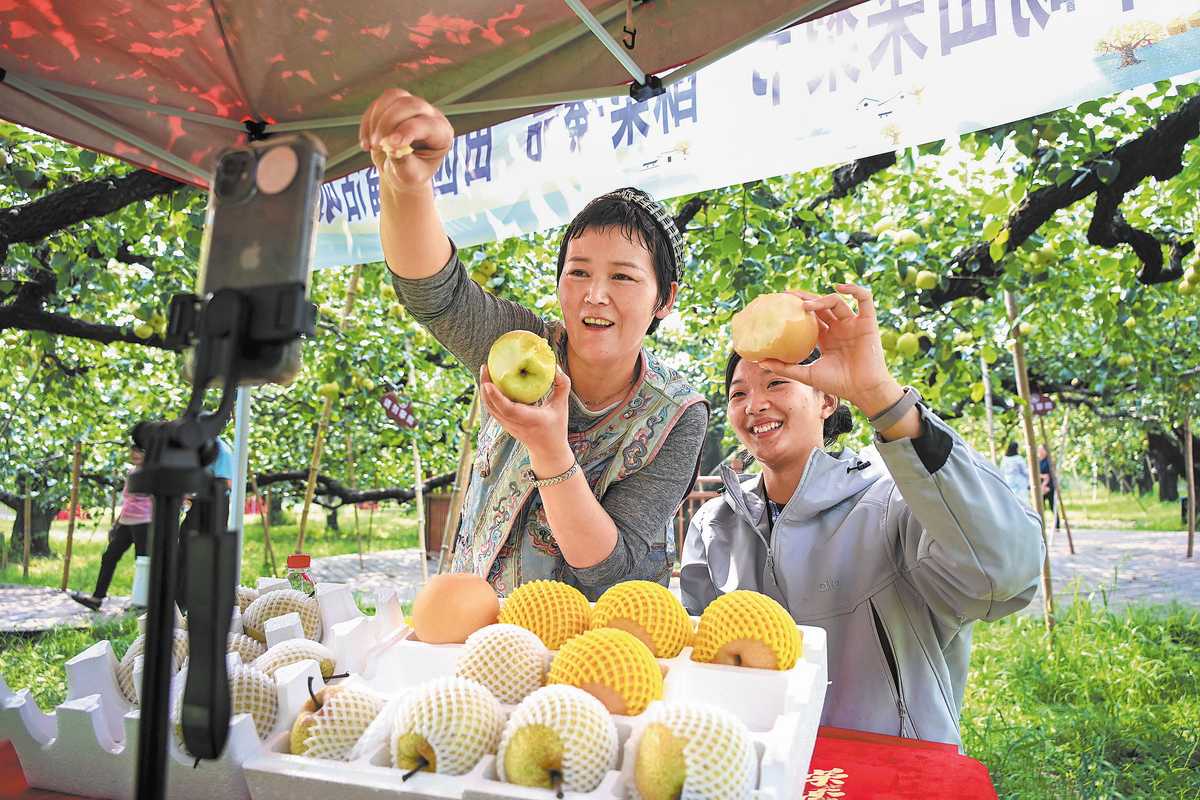
Chinese women are gaining greater rights to development in the economic sector, especially in the digital economy, and their talent has shone through thanks to their perseverance, improved educational background and working abilities.
Xie Mingli, 27, who switched her job from an education consultant to a cross-border e-commerce live-streaming anchor in Shenzhen, Guangdong province, in 2024, said it was an interesting choice to make, as she believes that women have the power to tackle challenges in both life and work.
"As a girl, I was told to stick to established practices like getting a bachelor's degree, finding a stable job and then getting married. But my mother, who is self-employed, has always encouraged me to try new things and never lose my curiosity or courage," she said. "I worked as an education consultant for two years after finishing my postgraduate education, and I think it's time to move on to another interesting career."
Xie is among the growing number of women starting their careers or getting higher engagement in the digital economy in recent years, thanks to the government's greater support for enhancing women's rights to development and for improving their digital literacy.
According to a white paper recently released by the State Council Information Office, which explains China's philosophy, principles and practices in promoting gender equality and women's well-rounded development in the new era, female employees comprise about 43 percent of the nation's total workforce, with the proportion maintained at that level since 2012.
The latest figures from the National Bureau of Statistics showed that as of the end of 2024, female employees totaled around 320 million, accounting for 43.4 percent of the nation's total workforce, indicating women's fuller engagement in economic development.
In addition, women account for over half of the entrepreneurs in the internet sector, and roughly one-third of the nation's workers in new forms of employment, including digital trade, e-commerce and livestreaming, the white paper said.
Early in 2022, AliResearch, the research arm of the Alibaba Group, released a report that said China's digital economy has created 57 million job opportunities for women, which has increased their value in the job market and expanded their employment space.
The report said that as of 2022, there were about 23.58 million female shop owners on the Chinese online shopping platform Taobao, and 12.44 million female livestreaming anchors on Taobao and Douyin, the Chinese version of TikTok.
Xie, the anchor, said that women have gained more respect, in addition to more equal returns and pay, and she believes the gender gap will continue to narrow in the future.
"When I was at school, seniors often said that employers preferred men as they would not be bothered by 'problems like giving birth'. I'm grateful that I didn't meet such discrimination, and I have been paid on a par with male workers, both at my previous job and the current one," she said.
"Women do have an equal, or even bigger, right to speak in the job market, as we possess excellent working abilities, especially in some e-commerce-related areas, where women can show higher affability and approachability," Xie said, adding that she is happy to see more women from different walks of life get involved in the digital economy, in which they can not only make a living but also create some social values.
Feng Ling, vice-president of the All-China Women's Federation, said at a recent news conference in Beijing that women are riding the digital economy wave, thanks to the government's continuous efforts to improve their digital literacy and give them skills training and financial support.
The Outline for Women's Development in China (2021-30), released in 2021 by the State Council, the country's Cabinet, has set a target of enhancing women's ability to use information technology to get engaged in socioeconomic high-quality development, she said, noting that several other State-level programs have also set targets and offered solutions to improve women's ability to get access to online entrepreneurship and forge their digital skills.
"The women's federation, together with the Ministry of Commerce and the Ministry of Agriculture and Rural Affairs, has organized training programs for women in the countryside since 2015 to teach them to make short videos and sell agricultural produce online," Feng said.
"Also, women starting or running their own businesses can get support through the nation's inclusive financial services. More women have realized their personal value in the digital economy sector, and turned into a strong force to push forward the development of the digital economy," she added.
















